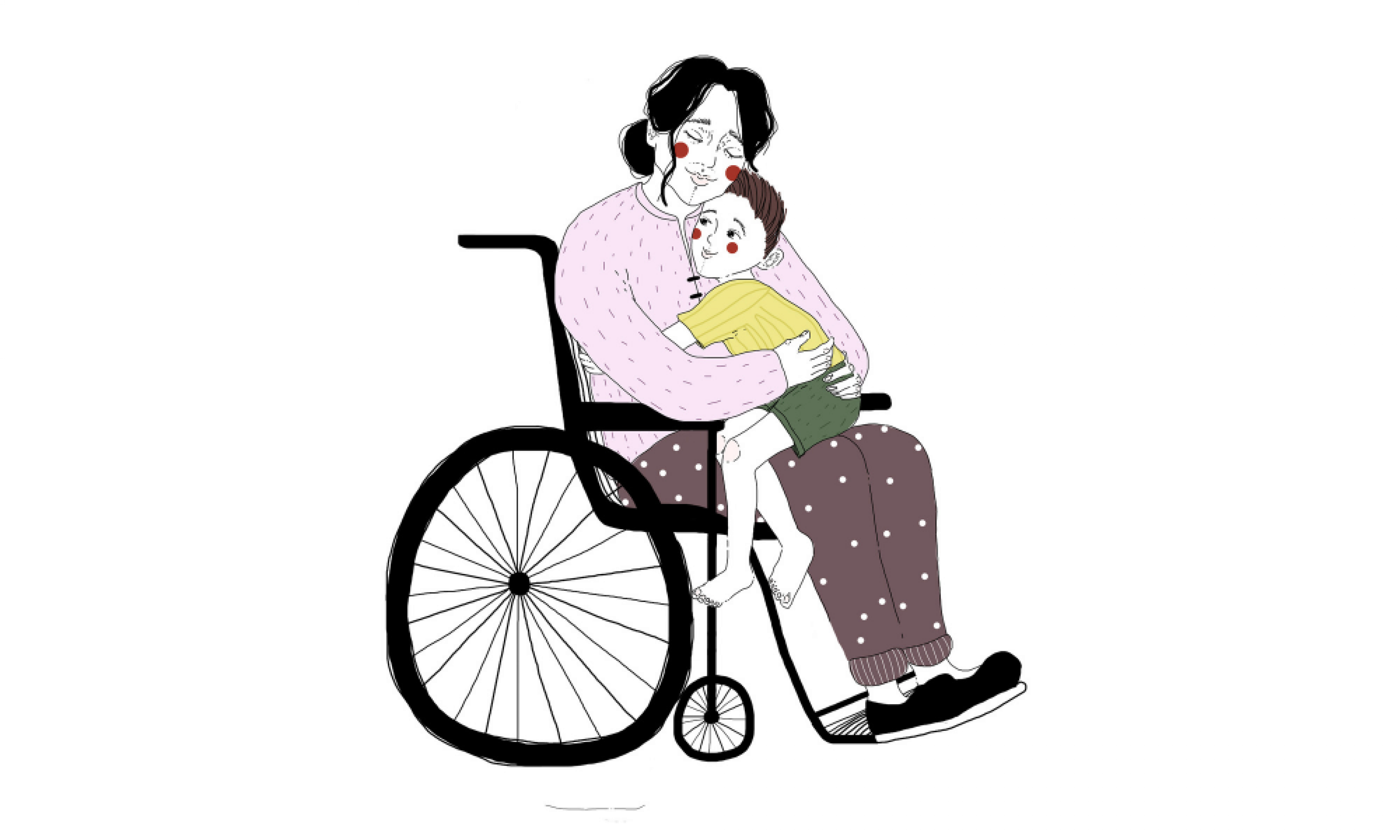Parenting with a Disability

“When I’m out with my girls, people don’t expect that I’m their mother.”
“If we do have a child we get asked if it is ours, ‘who is the parent?’, ‘where is the parent?’, or ‘why are you holding it?’”
“I was so scared social services would take my child away because of feeding him on the floor... I was really scared because I wasn't doing things the normal way if you like, that they'd take him away.”
“The problems we face are because there is a perceived contradiction between being a parent and being disabled, as if you can’t actually be both.”
From a Policy Paper by Women With Disabilities Australia (WWDA) 2009
Have you ever thought what it would be like to have your parenting ability constantly questioned? How about living in fear that your children will be removed from you? What if you had to fight for your right to become a parent? Raising children can be challenging under any circumstances but there are even greater obstacles for parents with a disability, and not for the reasons you may think: people’s attitudes can often be a greater impediment to people with a disability’s parenting than their disability.
Research shows that many parents with disabilities feel that society queries and judges their parenting more closely because of their disability. Women with disabilities planning to and/or raising a child are often subject to skepticism by family members, health practitioners, and even complete strangers regarding their ability to look after a child because of negative stereotypes and the misconception that people with disabilities are incapable of looking after themselves, let alone their children.
Many parents with disabilities feel that they are under the scrutiny of health professionals and have a genuine concern that their child may be taken away if authorities deem them unsuitable; this leads many parents to over-compensate in their parenting methods feeling that they have to work harder than non-disabled parents to be seen as competent. Going to extraordinary lengths to present themselves and their children as managing and capable can take a toll on physical and emotional well-being and also prevents parents with disabilities from asking for help for fear of being perceived as not coping.
The reality is that there are disabled people that are parenting, despite the perception that they are recipients of care rather than care-givers. There may be limitations on some of their abilities but there are limitations on all parents’ abilities. Having a disabled parent can teach children compassion, empathy, the beauty of diversity, and that life isn’t always easy. A parent with a disability can demonstrate resilience, teach strength of character, and can help kids understand responsibility and independence.
Whilst there is a plethora of information readily available about pregnancy, childbirth, and child-rearing, there is not as much material about disabled parenting. There are, however, a few organisations and resources that offer support and kinship:
Yooralla
Yooralla's Therapy Services, in collaboration with The Royal Women's Hospital, runs the Parenting with a Disability program to support new parents with physical, intellectual and mental health disabilities. The program aims to support new parents before and after the birth of their baby and works together with the parent to identify their needs, overcome obstacles and increase their skills and confidence, and also recommend advocacy groups for ongoing support.
Zest Care
Zest Care’s Support Coordinators can help parents with disabilities to manage their NDIS plan and work collaboratively with participants to engage services which align with their goals; that may be achieving more independence at home to participate better in family life or traveling to watch their child’s football games.
https://zestcare.net.au/blog/ndis-support-parents-disability/
Disabled Parenting New Zealand
Run for and by disabled parents, Disabled Parenting New Zealand provides information, support, links with other providers, and specialist training. It is also a meeting place to encourage, empower, and embrace all who are parenting with a disability.
https://www.facebook.com/DisabledparentingNZ/
The Disabled Parenting Project
The Disabled Parenting Project (DPP) is an online community for sharing experience, advice, and conversations by and for parents and prospective parents with disabilities. Its mission is to leverage technology in order to create opportunities for parents and prospective parents with disabilities to connect and interact, and serve as an information hub for relevant advice about adaptive parenting.
https://disabledparenting.com/
We’ve Got This: Parenting with a Disability
Produced by Eliza Hull, the ABC’s 2018 Regional Storyteller Scholarship recipient, this audio series explores the complexities that parenting with a disability brings, whilst also challenging stigmas and stereotypes. Eliza says, “Making this series I learned that through having a disability, parents give a beautiful and unique experience to their children. They grow up in a home where the difference is embraced, not feared.”

Potential talk
My name is Pauline and I am the Regional Coordinator for the Canterbury Down Syndrome Association, based in Christchurch.
One of the things we do is run Educational Events for our families and somewhere I read about a workshop or presentation you may have available on “Parenting Done Differently - strategies to avoid parental burnout when caring for a child who has Down syndrome.” Do I have this correct? If so, do you have anyone based in our region who would be available to present such a workshop or seminar to our lovely families.
If I am “barking up the wrong tree” and you know of anyone who could assist around this or a similar topic, I would be grateful for that information please.
Thanks so much, I look forward to hearing from you.